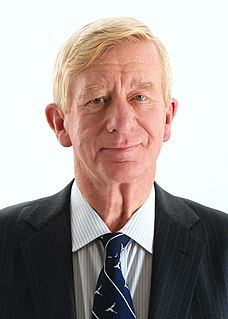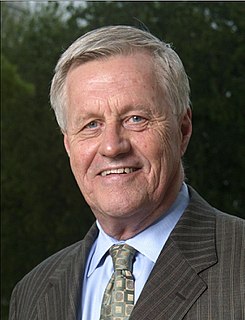A Quote by William Weld
The system that had grown up in most states is that wealthy districts with an affluent population can afford to spend a lot more on their public school systems than the poorer districts.
Related Quotes
I would like to dissolve the $10 billion national Department of Education created by President Carter and turn schools back to the local school districts, where we built the greatest public school system the world has ever seen. I think I can make a case that the decline in the quality of public education began when federal aid became federal interference.
It's now up to the states to figure out how they implement that definition of a well-rounded education, in other words, where they spend federal funds. The new law, the Every Student Succeeds Act, has suggestions like computer science, health, foreign language and geography. So there's no guarantee the arts will now flourish. Arts advocates are ready to help states and school districts with their plans.
The Germans, for example, have some kind of compromise between single-member and broader districts. In Israel, you have nothing, you have only a national election. You have no local districts at all. And that's because of the idea that in addition to other ideological differences, locality matters. The question is does the congressman represent his district and the interests of his district? And as I said there's quite a variety of systems the democratic world. The implications need to be examined.
The consequences of these institutions (The towns or districts, the congregations, the schools,and the militia.) have been, that the inhabitants, having acquired from their infancy the habit of discussing, of deliberating, and of judging of public affairs, it was in these assemblies of towns or districts that the sentiments of the people were formed in the first place, and their resolutions were taken from the beginning to the end of the disputes and the war with Great Britain.
































